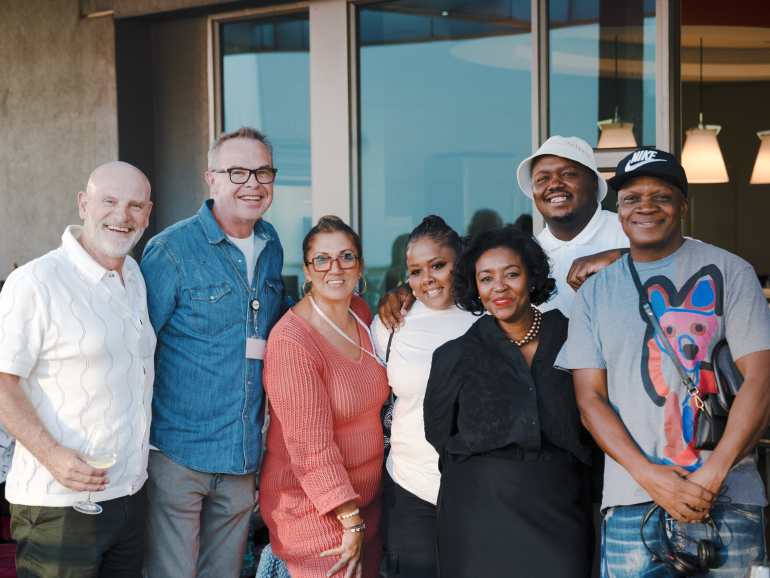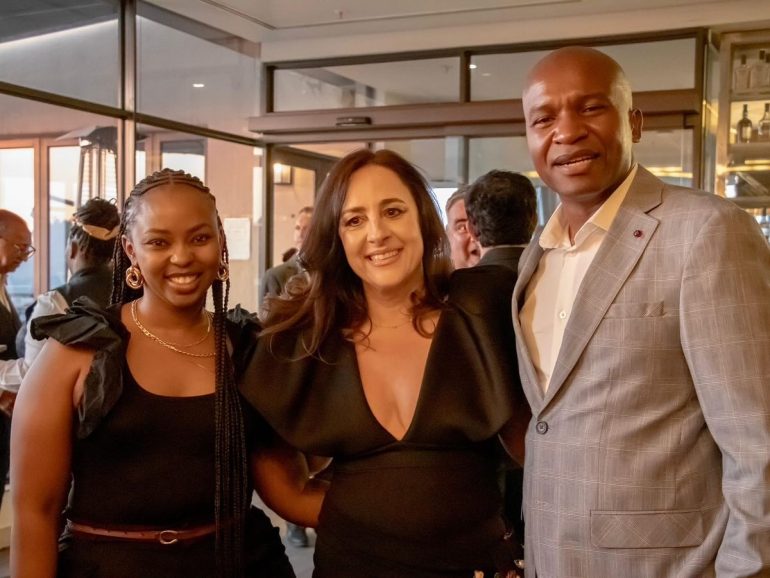- home Home
- keyboard_arrow_right PRESS OFFICE
- keyboard_arrow_right Posts
- keyboard_arrow_rightOPINION: Are women and children free in South Africa?
OPINION: Are women and children free in South Africa?
By Motlagae Konyana
We all yearn for a normal society where women and children can walk the streets without fear. As we celebrate freedom day today, are women and children really free in South Africa? Despite the great developments that have been made in South Africa, women and children are still not totally free. Safety is always our first concern when we consider where to live, where to work, where to walk, what we do on our own, where we go after dark, who do we speak to and what kind of work we choose. And that is not freedom at all.
In 2016 an International finance magazine The Economist conducted an anonymous survey in a township north of Johannesburg – Diepsloot. The survey revealed that 38% of men (two in five men) admits to having forced a woman to have sex with them (Raped). Another scary statistic that had been quoted by many South Africans, and widely mentioned across the world, was that a woman or child is raped every 26 seconds in South Africa. This statistic indicates that over 1.2 million women and children are raped every year in South Africa. Between 2015 and 2016, 42,596 women and 15,790 children who have been raped reported the case. How are we free as women and children in South Africa?
There are a number of incidences in our society that have put children and women in a vulnerable circumstances and not feeling safe or free.
The recent artwork by Ayanda Mabulu depicting President Jacob Zuma and the late former president, Nelson Mandela, in a compromising position shifted the focus on the scourge of abuse of women and children plaguing our society. Much as Mabulu’s artwork is insensitive to say at the very least, it also demonstrates the social ills we are facing in our everyday life and how women and children in South Africa are still not free.
It seems like we shrug our shoulders and move on with our lives as if such incidents are normal, because we don’t want to take responsibility. Because we move on like nothing happened and this makes it seem like our society is normal. But is this moral decay normal? What happened to our humanity (Ubuntu)? Mabulu may have been a talented artist and satirist, but he may have taken his talent a bit too far. Our country is experiencing political turmoil and there are various ways Mabulu could have used to put his message across rather than resort to pornography.
Hot on the heels of Mabulu furore, came shocking news of Omotoso, a Pastor who sexually abused countless girls from his congregation. This purported man of God abused the trust of his victims and indeed his entire congregation. He used his power to satisfy his sick desire. A man entrusted with duty of spreading the word of God to blatantly abuse the very souls He is supposed to heal. How can women and children in South Africa be free? When their place of refuge has become a place where their rights are violated. Our society has become sick to plunge religion into disrepute all in the name of desire. Church is a place of worship where people go for spiritual upliftment. This man has turned his church into a brothel. Are our sisters, cousins, mothers and grandmothers safe and free?
The recent incident where 3 men in a taxi, in front of a 12-year-old boy sexually assaulted a young woman paints a picture of a sick society. The Quantum Rape – where women were being raped in the taxi. Would women and children ever be free in South Africa?
We have reached a stage in our lives where we have given up on turning the sorry state of affairs around. We are afraid to ask pertinent questions lest we are labeled “clever blacks”. We should be taking responsibility for our own actions. However our justice system is failing us, our justice system is not doing enough to bring to perpetrators of abuse of women and children to book. It is the duty of the justice system to severely punish those found to be on the wrong side of the law and deter would-be perpetrators and it also our responsibility to take ownership and hold people accountable for our actions and improve our attitudes as they impact our actions.
Follow Motlagae Konyana on Twitter
Follow Kaya 959 on Twitter
Written by: Kayafm Digital
Similar posts
MORE ARTICLES

SA Lotto + Lotto Plus Results for tonight: Wednesday, 02 July 2025

WATCH: Actress, Noxolo Dlamini on starring in the Sarafina play & testing moments as a creative

WATCH: Standard Bank Young Artist Award Winner Modise Sekgothe on Kaya 959 for Youth Week Takeover

Elsa Majimbo on how much she misses living in SA – ‘I miss everything, even the crime’

WATCH: Standard Bank Young Artist Award Winner Muneyi on Kaya 959 for Youth Week Takeover
QUICK LINKS
UpComing Shows


The Best T in the City
With T Bose
He has held it down in the world of mid-morning radio with the best music, riveting topics, brilliant mixes and interesting guests. Every weekday, The Best T proves why he is the BEST by connecting to you like only your bro or favourite uncle could. He lets his listeners dictate the songs they want to hear in the ever-popular Top 10 at 10, and his Three Teaspoons never run out. Catch The Best T in the City Mondays to Fridays from 09h00 to 12h00.
close
Feel Good
With Andy Maqondwana
Feel good about feeling good! That's exactly what The Feel-Good show is about. An escape from the negativity that surrounds us, indulging you in good feels. Pass it on to one and all. Spread the good feeling around Gauteng with Andy Maqondwana.
close
Kaya Biz
With Gugulethu Mfuphi
The world of business is simplified for you by Kaya Biz with Gugulethu Mfuphi. This fast-paced award-winning business show talks to the corporate giants as well as up and coming entrepreneurs about their wins and challenges. Gugulethu invites guests to offer their analyses of markets and economies, and also delves into issues of personal financial wellness. Kaya Biz airs Mondays to Thursdays 18h00 to 19h00.
close
Point of View
With Phemelo Motene
Point of View with Phemelo Motene delves into the day’s current affairs, touches on real issues that affect people’s daily lives and shares expert advice on questions posed by the audience. Mondays to Thursdays 20:00 to 22:00.
close
959 Music Weekdays
Kaya 959 Hits
Real. Familiar. Memorable. Kaya 959 brings you the music you know and love from our playlist. Uninterrupted. Thursdays 20h00 to 21h00
closeConnect with Kaya 959
DownLoad Our Mobile App
© 2025 Kaya 959 | On The Street On The Air









